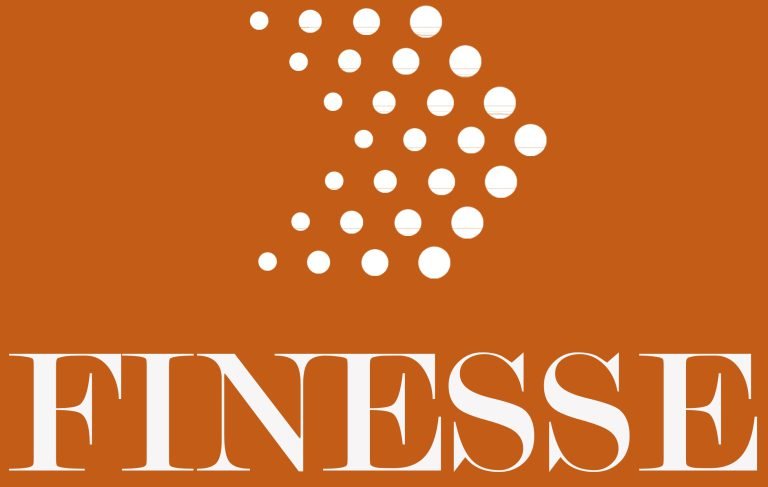Loan Documents
Personal Loan:
Most Indian households end up taking personal loans in the event of a financial emergency.
It could be to build a house, or buy a vehicle, or for their children’s higher education, or even in cases of medical contingencies, among other things. Know more about such loans — the various schemes, the structure, including charges, the drawbacks, the
alternatives, etc., by reading these ET stories.
An increasing number of consumers are now taking personal loans for their purchases, especially the big-ticket ones. They are also converting their purchases into equated monthly instalments (EMIs).
Personal loans help the households meet any shortfall they experience in buying a house or a car, in children’s higher education, or even in cases of medical contingencies, among other things.
Personal Loan Documents:
KYC and Income Documents for Personal Loan:
| Form | Signed Application Form with a Photograph |
| Identity Proof | Aadhaar Card / PAN Card/ Driving License, Voter ID Card, Passport |
| Age Proof | Birth Certificate/ Voter ID Card/ School or College Leaving Certificate |
| Address Proof | Passport/ Aadhaar Card/ Voter ID Card/ Landline Bill/ Registered Rent Agreement/ Driving License/ Bank Statement/ Passbook/ Utility Bill |
| Income Proof | ITR Forms, Form 16, Last 6 Months Salary Slips, and Bank Statements |
For Salaried Employees:
Signed application form along with a photograph
Identity proof such as Aadhaar card, PAN card, Voter Id card, or passport
Address proof such as passport, utility bills like electricity, gas, water, or telephone, and driving license
Age proof such as school and college leaving certificates, birth certificates, and voter Id card
Income proof such as ITR forms, form 16, last six months salary slips, and banking statements
For Self-Employed Individuals:
1. Signed application form along with a photograph
2. Identity proof such as Aadhaar card, PAN card, Voter Id card, or passport
3. Age proof such as school and college leaving certificates, birth certificates, and voter Id card
4. Address proof such as passport, utility bills like electricity, gas, water, or telephone, and driving license
5. Income proof such as ITR forms, form 16, 6 months salary slips, and bank statements
6. Proof of their business existence through documents like the partnership deed, certificate of practice, registration certificate, and PAN card of the business enterprise.
For NRI Applicants:
1. Signed application form along with a photograph
2.Identity proof such as Aadhar card, PAN card, Voter Id card, or passport
3. Address proof such as passport, utility bills like electricity, gas, water, or telephone, and driving license
4. Age proof such as school and college leaving certificates, birth certificates, and voter Id card
5. Income proof such as ITR forms, form 16, last six months salary slips, and banking statements for the last twelve months for both the Indian and international bank accounts
6. Passport and Visa copy
7. The NRI applicant also needs to submit a power of attorney that is attested by the local authorities, in case they are present in the country while availing the loan.
8.All the documents related to salary must be submitted in English.
For Pensioners:
1.Signed application form along with a photograph
2.Identity proof such as aadhar card, PAN card, Voter Id card, or passport
3. Address proof such as passport, utility bills like electricity, gas, water, or telephone, and driving license which should not be older than last three months
4. Age proof such as school and college leaving certificates, birth certificates, and voter Id card
5. Income proof such as ITR forms or form 16 from the last two years, last six months salary slips, and banking statements
Bank Name | Personal Loan Interest Rate |
HDFC Bank | 10.49 |
Axis Bank | 10.49 |
ICICI Bank | 10.99 |
SBI Bank | 9.60 |
Frequently asked Questions
Simply put, it is an unsecured loan taken by individuals from a bank or a non-banking financial company (NBFC) to meet their personal needs.
It is provided on the basis of key criteria such as income level, credit and employment history, repayment capacity, etc.
Unlike a home or a car loan, a personal loan is not secured against any asset.
As it is unsecured and the borrower does not put up collateral like gold or property to avail it, the lender, in case of a default, cannot auction anything you own.
The interest rates on personal loans are higher than those on home, car or gold loans because of the greater perceived risk when sanctioning them.
However, like any other loan, defaulting on a personal loan is not good as it would reflect in your credit report and cause problems when you apply for credit cards or other loans in future.
It can be used for any personal financial need and the bank will not monitor its use.
It can be utilised for renovating your home, marriage-related expenses, a family vacation, your child's education, purchasing latest electronic gadgets or home appliances, meeting unexpected medical expenses or any other emergencies.
Personal loans are also useful when it comes to investing in business, fixing your car, down payment of new house, etc.
Although it varies from bank to bank, the general criteria include your age, occupation, income, capacity to repay the loan and place of residence.
To avail of a personal loan, you must have a regular income source, whether you are a salaried individual, self-employed business person or a professional.
An individual's eligibility is also affected by the company he is employed with, his credit history, etc.
It can be 1 to 5 years or 12 to 60 months.
Shorter or longer tenures may be allowed on a case by case basis, but it is rare.
Typically, it gets disbursed within 7 working days of the loan application to the lender.
Once approved, you may either receive an account payee cheque/draft equal to the loan amount or get the money deposited automatically into your savings account electronically.
It usually depends on your income and varies based on whether you are salaried or self-employed.
Usually, the banks restrict the loan amount such that your EMI isn't more than 40-50% of your monthly income.
Any existing loans that are being serviced by the applicant are also considered when calculating the personal loan amount.
For the self employed, the loan value is determined on the basis of the profit earned as per the most recent acknowledged profit/Loss statement,
while taking into account any additional liabilities (such as current loans for business, etc.) that he might have.
Yes, though the exact amount varies from one institution to another.
Most lenders have set their minimum personal loan principal amount at Rs 30,000.
It is good to compare the offers of various banks before you settle on one.
Some key factors to consider when deciding on a loan provider include interest rates, loan tenure, processing fees, etc.
Although the loan sanctioning criteria may differ from one bank to another, some key factors determining the maximum loan amount that can be sanctioned to you include your credit score, current income level as well as liabilities.
A high credit score (closer to 900) means you have serviced your previous loans and/or credit card dues properly, leading the lenders to feel that you are a safe borrower, leading to a higher loan amount being sanction.
Your current income level and liabilities (outstanding credit card dues, unpaid loans, current EMIs, etc.) have a direct bearing on your repayment capacity.
Therefore, if you are in a lower income bracket or have a large amount of unpaid credit card bills or outstanding loan EMI, you will be sanctioned a lower personal loan amount than those with a higher income or fewer financial liabilities.
Low EMI offers can typically result from a long repayment term, a low interest rate, or a combination of the two factors.
hus, sometimes, you may end up paying more interest to your lender if you choose low EMIs.
So use online tools like the personal loan EMI calculator to find out your interest payout over the loan tenure and your repayment capacity before taking a call.
Being unsecured loans, personal loans have a higher interest rate than those on secured 'home and car' loans.
At present, many leading banks and NBFCs offer such loans at interest rates of as low as 10.50%.
However, the rate applicable to a borrower is contingent on key factors, including credit score, income level, loan amount and tenure, previous relationship (savings account, loans or credit cards) with the lender, etc.
Yes. In addition to the interest payable on the principal amount, there is a non-refundable charge on applying for a personal loan.
The lender charges processing fees, usually 1-2% of the loan principal, to take care of any paperwork that needs to be processed as part of the application process.
The lender may waive this charge if you have a long-term association with him.
For a fixed rate personal loan, the EMIs remain fixed.
Floating rate means the EMIs keep decreasing as it follows the reducing balance method of calculating interest payout on a personal loan.
As per the new Marginal Cost of Funds based Lending Rate (MCLR) rules, floating rates may be changed either on a half-yearly or annual basis.
As the name implies, in the former, the borrower pays interest only on the outstanding loan balance, i.e., the balance that remains outstanding after getting reduced by the principal repayment.
In flat interest rate scenario, the borrower pays interest on the entire loan balance throughout the loan term. Thus, the interest payable does not decrease even as the borrower makes periodic EMI payments.
Yes, you can apply for a personal loan either yourself (singly) or together with a co-applicant (jointly), who needs to be a family member like your spouse or parents.
Having a co-borrower means your loan application will be processed in a higher income bracket, making you eligible for a larger loan amount.
However, keep in mind that if you or the co-applicant has a poor credit history, the chances of success of your loan application may be low.
Yes, however, some banks allow borrowers to prepay the loan only after certain number of repayments has been made.
Some lenders do not allow partial prepayment. Prepayment charges may be levied on the outstanding loan amount.
Though the documentation requirements vary from one financial institution to another, some key documents you will have to provide with your personal loan application include:
*Income proof (salary slip for salaried/recent acknowledged ITR for self-employed)
*Address proof documents
*Identity proof documents
*Certified copies of degree/licence (in case of self-employed individuals)
It can be repaid in the form of EMIs via post-dated cheques (PDC) drawn in favour of the bank
or by releasing a mandate allowing payment through the Electronic Clearing Services (ECS) system.
If you decide to pay off your loan before its tenure has completed, you get charged an additional fee called prepayment/foreclosure charge/penalty.
This penalty usually ranges between 1 and 2% of the principal outstanding. Some banks, however, charge a higher amount to foreclose a loan.
*Part payment: This amount is less than the full loan principal amount and is made before the loan amount becomes due.
*Prepayment: When you pay off your loan in part before it becomes due as per the EMI schedule.
The prepayment amount may or may not be equal to the total due amount. Prepayment charges are usually in 2-5% range of the outstanding loan amount. Additionally, many banks do not allow prepayment/preclosure of loan before a specified number of EMIs have been completed.
*Preclosure: It refers to completely paying off a personal loan before the loan tenure has ended. Just like prepayment charge, preclosure charges range from 2- 5% of the loan amount.
The approval is at the sole discretion of the loan sanctioning officer whose decision is based on the criteria specified by the bank/financial institution.
The entire process can take between 48 hours and about two weeks. Once all the necessary documents are submitted and the verification process is completed, the loan, if sanctioned, is disbursed within seven working days by the bank. Do keep all necessary documents ready along with PDC and/or signed .
If you miss your scheduled EMIs and are unable to make future payments, the lender first will try to recover the due amount through settlements and recovery agents.
If such attempts fail and your loan account is marked as a default, the loan will show up on your credit report as a default, adversely affecting your credit score and making it difficult for you to get loan and credit card approvals in future.
Although personal loans usually have no tax benefits, but if you take one for home renovations/down payment, you may be eligible for I-T deduction under Section 24.
However, this tax benefit is limited to only the interest, not the principal amount. Also, to claim deduction, you will have to furnish proper receipts.
A lender, in some cases, will allow you to transfer the balance (amount still to be repaid) on your loan from the present lender to a new one.
The new lender will pay off the balance amount to the present lender. At the end of the balance transfer process, you will owe the new lender payments plus applicable interest that is left on your loan.
A balance transfer helps you benefit from the lower interest rate offered by the new lender, however, there are a few charges such as balance transfer fee, prepayment charges, etc., that may be applicable.
A major portion of your initial EMIs is actually used to pay off the interest due on your loan.
This process is called "front loading", hence only a small portion of the principal is paid off initially. As you progress further with your EMIs, these small decreases in the principal amount add up, leading to a decrease in the interest charged on the outstanding amount.
A larger portion of the EMI is, thus, used to pay of loan principle in later year.
Credit card loan is an offer that you may be able to avail on your card.
Such a loan is only applicable to specific cards and you can only approach your card issuer for a loan on it.
When it comes to a personal loan, on the other hand, you can approach any lender.
Moreover, unlike a personal loan application, card loans don't require any additional documentation.
Since a personal loan is an unsecured loan, therefore your credit history usually plays a significant role in the approval process.
Equifax, Experian and CIBIL TransUnion are the three credit reporting agencies that operate in India.
All 3 have tie-ups with lenders and provide their credit rating services to help lenders evaluate prospective borrowers.
Experian India has collaboration with Union Bank of India, Sundaram Finance, Punjab National Bank, Magna Finance, Indian Bank, Axis Bank and Federal Bank to provide credit information services.
Equifax India has tie-ups with State Bank of India, Union Bank of India, Religare Finvest Limited, Kotak Mahindra Prime Ltd and Bank of Baroda.
Credit Bureau (India) Ltd (CIBIL) is the country's first credit information company that, in collaboration with TransUnion, is a globally recognised credit reporting agency.
All three maintain detailed records of your credit history, including repayment track record of all your credit card bills and any current or previous loans.
Before approving your loan, the prospective lender cross checks your repayment track record.
A higher credit score indicates that you have a good track record with respect to loans.
Therefore, if your credit score is high (more than 750 in case of CIBIL TransUnion), your chances of being granted a loan are much.
Additionally, you may be able to negotiate benefits such as a lower interest rate, higher loan amount, waiver of processing charges, etc., by leveraging your high credit score.
A personal loan requires one to submit some basic personal loan documents across all lenders.
These include the personal loan application form of the lender; identity proof such as aadhar card, PAN card, Voter Id card, or passport; address proof such as passport, utility bills like electricity, gas, water, or telephone, and
driving license; age proof such as school and college leaving certificates, birth certificates, and voter Id card; and lastly income proof such as ITR forms, form 16, last six months salary slips, and banking statements.
In addition to these, self-employed business enterprises are also required to submit the proof of their business existence through documents like the partnership deed, certificate of practice, registration certificate, and PAN card
of the business enterprise.
Thus, the personal loan documents vary across the occupation of the applicant, instead of the lenders.
The proof of income valid for a personal loan include various documents that reflect the earning of a loan applicant. For salaried individuals, these include the form 16 from the last two years, the applicant's last six month's
salary slip, and the bank statement for the last six months. Self-employed individuals, on the other hand, require last two-year ITR forms, and bank account statements for the last six months.
The minimum and maximum age limit to get a personal loan are 21 years and 65 years, respectively.
Yes, personal loans require proof of income to be submitted by the borrower. This is because the personal loans are unsecured loans, and thus the repayment ability of the borrower is ensured through their income.
Personal Loan News – Jul 2021:
2021-08-01 : Special HDFC Bank Offer for Government Employees
HDFC Bank has launched a special Freedom Dhamaka Offer for personal loans for government employees. The personal loan rates start at 10.25% and are valid till 15th August 2021.
2021-07-27 : Google Updates Policy for Personal loan Apps
Google has asked all the personal loan lending apps in India to provide a declaration form stating that the application serves as a middle-man for registered non-banking financial companies (NBFCs) or banks.
The apps must comply with these norms and provide relevant documentation such as a license till September 15 if they want to stay listed on the app store.
2021-07-23 : RBI Revises Personal Loan Limit to Rs. 5 Crore for Board Directors.
RBI has revised the limit of the personal loan that can be granted to board directors and their families.
The new limit is set at ?5 crore as against the earlier threshold at ?25 lakh.
2021-07-16 : Amalgamation of Bank of Baroda, erstwhile Vijaya Bank and erstwhile Dena Bank
Bank of Baroda, on its website, stated that the IFSC codes of the erstwhile Vijaya Bank and Dena Bank were discontinued on March 1, 2021.
Customers have been asked to apply for cheque books with the new MICR code at the earliest.
2021-07-16 : UBI update on change in IFSC code for merged banks – Andhra Bank and Corporation Bank
Union Bank of India (UBI) on Friday said the IFSC codes of the erstwhile e-Andhra Bank and e-Corporation Bank branches will change with effect from July 1, 2021.
Customers of the erstwhile banks will have to get new cheque books with changed IFSC and MICR codes




Sed ut perspiciatis unde omnis iste natus error sit voluptatem accusantium doloremque lau dantium, totam rem aperiam, eaque ipsa quae ab illo inventore veritatis et quasi archi tecto beatae vitae dicta sunt explicabo.
Nemo enim ipsam voluptatem quia voluptas sit aspernatur aut odit aut fugit, sed quia conse quuntur magni dolores eos qui ratione voluptatem sequi nesciunt.
Nemo enim ipsam voluptatem quia voluptas sit aspernatur aut odit aut fugit, sed quia conse
quuntur magni dolores eos qui ratione voluptatem sequi nesciunt.
Sed ut perspiciatis unde omnis iste natus error sit voluptatem accusantium doloremque lau dantium, totam rem aperiam, eaque ipsa quae ab illo inventore veritatis et quasi archi tecto beatae vitae dicta sunt explicabo.
Sed ut perspiciatis unde omnis iste natus error sit voluptatem accusantium doloremque lau dantium, totam rem aperiam, eaque ipsa quae ab illo inventore veritatis et quasi archi tecto beatae vitae dicta sunt explicabo voluptatem sequi nesciunt.
Nemo enim ipsam voluptatem quia voluptas sit aspernatur aut odit aut fugit, sed quia conse quuntur magni dolores eos qui ratione voluptatem sequi nesciunt.
Personal Loans
Home Loans
Loans Against Property
Education Loan
Business Loan
Apply For Personal Loan
Our Services
Contact Us
-
Old # 37/5, New # 97/5,
Arya Gouda Road,
1st Floor, West Mambalam,
Chennai - 600 033 -
+91 96262 58000
+91 95855 96357 - finessechennaioffice@gmail.com
Our Brochures
We are happy for our achievement


What our client say

Nicolas Puranix

Carolyn Smith

Pamela Johnson



What our client say
Sameer K.
Rajesh Kumar
Sakshi Iyer





